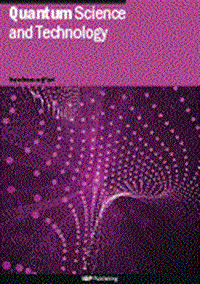检测效率不匹配的容损量子密钥分布
IF 5.6
2区 物理与天体物理
Q1 PHYSICS, MULTIDISCIPLINARY
引用次数: 0
摘要
当前量子密钥分发(QKD)的实现通常依赖于准备和测量(P&M)方案。不幸的是,这些实现并不是完全安全的,除非安全证明完全包含了真实设备的所有缺陷。到目前为止,现有的证明主要集中在光源或测量装置的缺陷上。在本文中,我们建立了包含源和检测器缺陷的容错P&M QKD协议的安全性证明。具体来说,我们证明了该方案在发射态偏离理想状态和Bob的测量装置不满足基无关检测效率条件时的安全性。此外,我们进行了一项实验,以表征商用单光子探测器的探测效率失配作为输入光偏振状态的函数,并确定在使用这种探测器时存在状态制备缺陷时的预期密钥速率。我们的工作为保证广泛部署的P&M QKD的实际实现的安全性提供了一种方法。本文章由计算机程序翻译,如有差异,请以英文原文为准。
Loss-tolerant quantum key distribution with detection efficiency mismatch
Current implementations of quantum key distribution (QKD) typically rely on prepare-and-measure (P&M) schemes. Unfortunately, these implementations are not completely secure, unless security proofs fully incorporate all imperfections of real devices. So far, existing proofs have primarily focused on imperfections of either the light source or the measurement device. In this paper, we establish a security proof for the loss-tolerant P&M QKD protocol that incorporates imperfections in both the source and the detectors. Specifically, we demonstrate the security of this scheme when the emitted states deviate from the ideal ones and Bob’s measurement device does not meet the basis-independent detection efficiency condition. Furthermore, we conduct an experiment to characterise the detection efficiency mismatch of commercial single-photon detectors as a function of the polarisation state of the input light, and determine the expected secret key rate in the presence of state preparation flaws when using such detectors. Our work provides a way towards guaranteeing the security of actual implementations of widely deployed P&M QKD.
求助全文
通过发布文献求助,成功后即可免费获取论文全文。
去求助
来源期刊

Quantum Science and Technology
Materials Science-Materials Science (miscellaneous)
CiteScore
11.20
自引率
3.00%
发文量
133
期刊介绍:
Driven by advances in technology and experimental capability, the last decade has seen the emergence of quantum technology: a new praxis for controlling the quantum world. It is now possible to engineer complex, multi-component systems that merge the once distinct fields of quantum optics and condensed matter physics.
Quantum Science and Technology is a new multidisciplinary, electronic-only journal, devoted to publishing research of the highest quality and impact covering theoretical and experimental advances in the fundamental science and application of all quantum-enabled technologies.
 求助内容:
求助内容: 应助结果提醒方式:
应助结果提醒方式:


